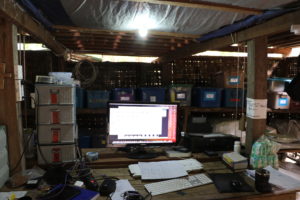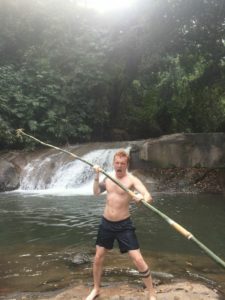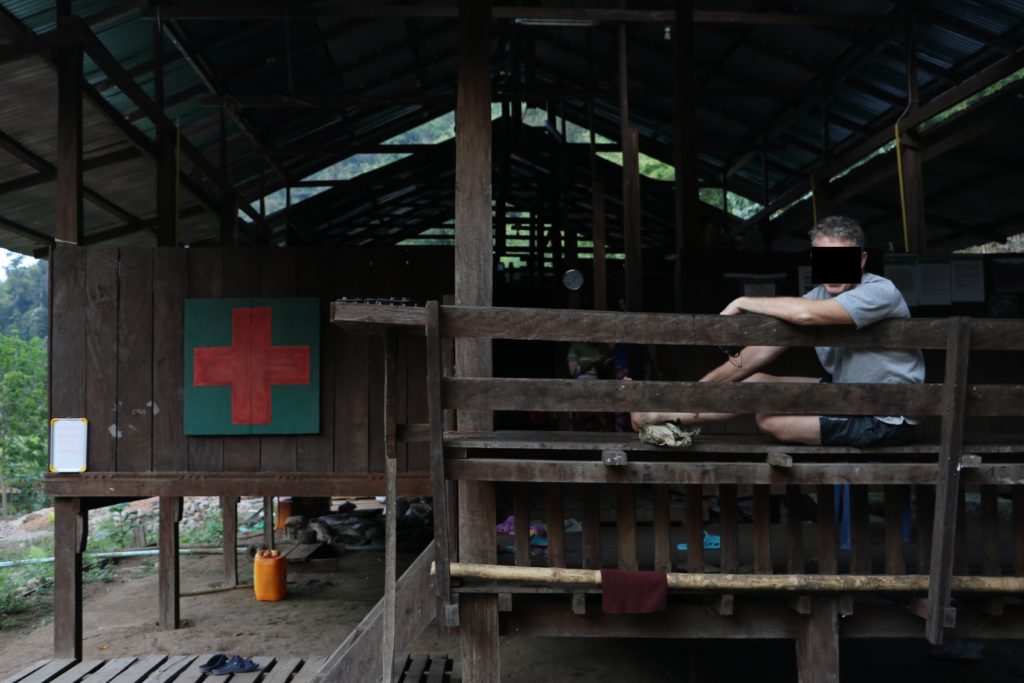Service comes first.
You would think this is the thing that veterans are the best at. After all, they spent a good chunk of their lives serving in some capacity or another. Unfortunately, that’s not always the case. A lot of people come in with their skill or job that I mentioned above, and they want to use it in a specific way. They’re there to do whatever they imagined they’d do, and when they get on the ground they get frustrated that they’re not actively throwing tourniquets on wounded soldiers or side-by-side with rebels as they take some hill. They have a picture of how they want it to be, and aren’t happy when life takes the usual unexpected turns. In Burma, there was a relief organization (that shall not be named) that would NOT listen to the local security forces when they were told to hide–there were U.S. veterans who “weren’t scared” of the bad guys–incidentally putting everyone in needless jeopardy as they did. Needless to say, that group is no longer welcome in that part of Burma.
If you’re there to satiate some thirst for combat, that means you’re not there to serve anyone but your own adventurous self. They need people who are just as willing to get into a firefight as they are willing to pick up trash or load up sandbags from the river. They need people who understands that if they really are an expert at what they do, then serving as a teacher is probably the most valuable position they can find themselves in. If you’re good at excel and they need someone to run the books–then serve in the way you’re good at. That’s how you make a difference.

Figure out the money situation.
This is a reality that is easy to gloss over. When you join the military, money isn’t really a problem–from the first pay period on, you’re taken care of. It’s not like that in the mission field. There are generally two primary ways people afford this lifestyle:
- Find your own source of income. It could be contracting when you’re back stateside, seasonal firefighting, online work, whatever. As you’ll see below, the costs are usually not super high, but you still have to have some amount of cash-flow.
- Find support back home. Many missionaries and aid workers have churches, rich people, fund-raisers, grants, etc. funding their operations. Before you roll your eyes and assume these aid workers are just pocketing the cash, know that there are tons of groups out there that are honestly using that money to contribute to the people they work with, be it medical aid, construction, whatever. The swindlers are out there, but if you do your research it’s not hard to find out who they are.
Sometimes it’s possible to get supporters of current aid workers or missionaries to support you too, when they find out that you’re working for the same cause as someone else they support–but that can take time after you’re already there.
With that said, the types of places that require foreign aid workers generally don’t have a high cost of living. Even in Chiang Mai, Thailand–one of the larger cities there–a decent apartment is only going to run you a couple hundred bucks a month, maybe a bit more. Thai food is almost negligibly priced, coming in at $3 or $4 a meal if you’re hungry. If you eat out and eat foreign food (American food, for example), you might start to drive the bills up, but it would take a lot.
Depending on where you go, the worst expense is the plane ticket. If you’re moving there, a couple thousand dollars per ticket isn’t the end of the world, but if you’re visiting for just a couple of weeks it can be pretty pricey.

Visit first.
Most people expect this one–of course you would want to visit and get the lay of the land before you moved to a place. But it really is extremely important; it will give you your own connections, let you really see how things would be, and just makes it personal.
Know what seasons are tourist seasons if they have them, thereby making the tickets significantly more expensive. If blistering, humid heat doesn’t bother you, a ticket to Thailand in the summer could cost half of what it costs around Christmas-time.
Aid work is nothing short of an adventure, but the most effective aid workers/missionaries are simply servants, there to help the people in whatever exciting or mundane way necessary.
Featured image: Me, just after a two-day walk into the heart of the Burmese jungle. And yes, those are crocks–great for jungle living, though I wouldn’t be caught dead with them back here!
All images provided by Luke Ryan.











COMMENTS